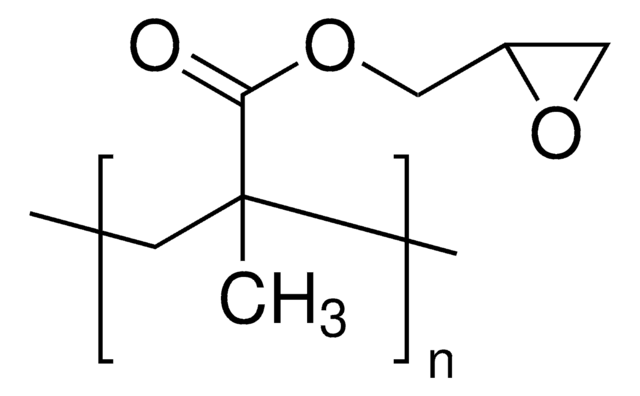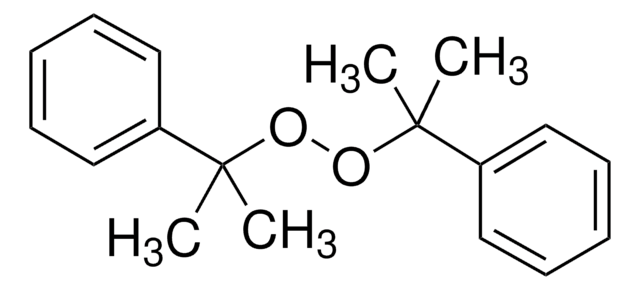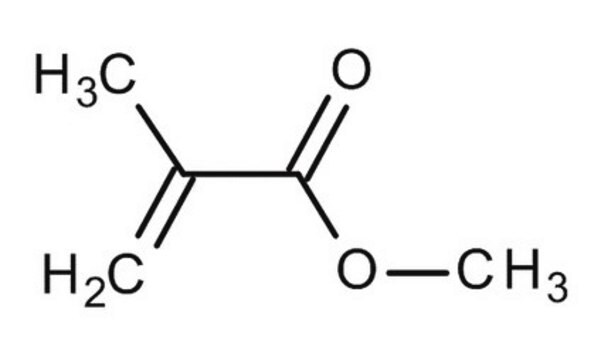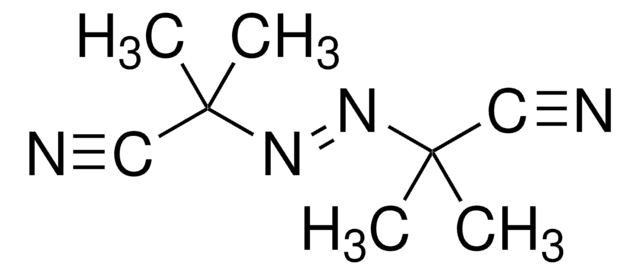8.00609
2,3-Epoxypropyl methacrylate
Technipur®, for synthesis
Synonym(s):
Glycidyl methacrylate, 2-((Methacryloxy)methyl)oxirane, 2,3-Epoxypropyl methacrylate, Methacrylic acid 2,3-epoxypropyl ester
About This Item
Recommended Products
grade
for synthesis
Quality Level
vapor pressure
4.2 hPa ( 25 °C)
refractive index
n20/D 1.449 (lit.)
bp
189 °C (lit.)
mp
<-60 °C
density
1.042 g/mL at 25 °C (lit.)
1.07 g/cm3 at 25 °C
SMILES string
CC(=C)C(=O)OCC1CO1
InChI
1S/C7H10O3/c1-5(2)7(8)10-4-6-3-9-6/h6H,1,3-4H2,2H3
InChI key
VOZRXNHHFUQHIL-UHFFFAOYSA-N
Looking for similar products? Visit Product Comparison Guide
General description
Application
It is also used to prepare poly(n-butyl methacrylate-co-glycidyl methacrylate) copolymers, which find applications in adhesives, surface coatings, and electrical devices in various polymeric industries. The presence of epoxy groups and flexible butyl groups in epoxy resin-modified copolymers increases its mechanical properties, impact strength, and fracture elongation.
Legal Information
Signal Word
Danger
Hazard Statements
Precautionary Statements
Hazard Classifications
Acute Tox. 3 Dermal - Acute Tox. 4 Oral - Carc. 1B - Eye Dam. 1 - Muta. 2 - Repr. 1B - Skin Corr. 1C - Skin Sens. 1 - STOT RE 1 - STOT SE 3
Target Organs
Respiratory system
Storage Class Code
6.1C - Combustible, acute toxic Cat.3 / toxic compounds or compounds which causing chronic effects
WGK
WGK 3
Flash Point(F)
168.8 °F - closed cup
Flash Point(C)
76 °C - closed cup
Certificates of Analysis (COA)
Search for Certificates of Analysis (COA) by entering the products Lot/Batch Number. Lot and Batch Numbers can be found on a product’s label following the words ‘Lot’ or ‘Batch’.
Already Own This Product?
Find documentation for the products that you have recently purchased in the Document Library.
Our team of scientists has experience in all areas of research including Life Science, Material Science, Chemical Synthesis, Chromatography, Analytical and many others.
Contact Technical Service










